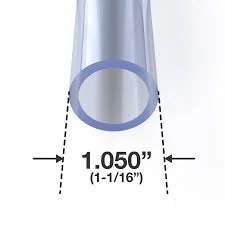Oct . 19, 2024 05:20 Back to list
High-Density Polyethylene Drip Irrigation Tubing for Efficient Water Management Solutions
Understanding HDPE Drip Pipes Benefits and Applications
In modern agriculture, efficient water management is crucial for sustainable crop production. One of the most effective methods of irrigation that has gained popularity in recent years is the use of HDPE (High-Density Polyethylene) drip pipes. These innovative irrigation systems present numerous advantages, making them a preferred choice for farmers across the globe. In this article, we'll explore the characteristics, benefits, and applications of HDPE drip pipes.
What is HDPE?
High-Density Polyethylene (HDPE) is a thermoplastic polymer produced from the polymerization of ethylene. Known for its strength and durability, HDPE is widely used in various industries, including agriculture, construction, and packaging. The properties of HDPE make it an ideal material for creating drip irrigation systems that are effective, reliable, and cost-efficient.
Features of HDPE Drip Pipes
HDPE drip pipes are designed to deliver water directly to the root zone of plants in a controlled and efficient manner. Some key features that make HDPE drip pipes stand out include
1. Durability HDPE is highly resistant to wear and tear, chemicals, and UV radiation, which prolongs the lifespan of drip pipes. This durability ensures that farmers can invest in a long-term irrigation solution.
2. Ease of Installation HDPE drip systems are relatively easy to install and can be customized according to the specific needs of various crops and field layouts.
3. Low Maintenance Unlike traditional irrigation systems, HDPE drip pipes require minimal maintenance. The smooth interior surface of the pipes reduces the risk of clogging, thereby ensuring a consistent flow of water.
4. Flexibility HDPE drip pipes are flexible, allowing for easy adaptation to uneven terrains and various crop arrangements. This adaptability makes them suitable for different agricultural practices.
5. Cost-Effectiveness Though the initial investment may be higher than other irrigation methods, the long-term savings from reduced water usage and increased yields make HDPE drip pipes a cost-effective option for farmers.
Benefits of Using HDPE Drip Pipes
hdpe drip pipe

The implementation of HDPE drip irrigation systems offers several advantages that contribute to enhanced agricultural productivity
1. Water Efficiency HDPE drip pipes deliver water directly to the root zone, reducing evaporation and runoff. This targeted approach significantly improves water use efficiency, which is essential in water-scarce regions.
2. Increased Crop Yields The precise application of water and fertilizers through drip irrigation promotes healthier plant growth. Studies have shown that crops irrigated using HDPE drip systems can yield significantly higher outputs compared to those relying on traditional irrigation methods.
3. Reduced Soil Erosion By minimizing water runoff and allowing for controlled irrigation, HDPE drip pipes help maintain soil structure and prevent erosion. This is particularly beneficial in hilly or sloped areas.
4. Improved Fertilizer Management With HDPE drip systems, fertilizers can be injected directly into the irrigation water. This method, known as fertigation, ensures that plants receive essential nutrients in a timely and efficient manner.
5. Sustainability The use of HDPE pipes promotes sustainable agriculture practices by conserving water and optimizing resource use. This is crucial in the face of global challenges like climate change and water scarcity.
Applications of HDPE Drip Pipes
HDPE drip pipes are versatile and can be utilized in various agricultural sectors, including
- Fruit and Vegetable Cultivation These crops often require precise watering and nutrition management, making HDPE drip systems an ideal choice. - Greenhouses The controlled environment of greenhouses benefits greatly from the targeted irrigation provided by HDPE drip pipes. - Horticulture Flower and ornamental plant growers can achieve optimal moisture levels and nutrient delivery through drip irrigation.
Conclusion
HDPE drip pipes represent a significant advancement in irrigation technology, offering numerous benefits that align with the needs of modern agriculture. By enhancing water efficiency, improving crop yields, and promoting sustainable practices, HDPE drip systems are transforming the way farmers approach irrigation. As agricultural challenges continue to evolve, the adoption of innovative technologies like HDPE drip pipes will play a pivotal role in securing food production for a growing population. Investing in HDPE drip irrigation is not just an investment in today’s farm; it's a commitment to a sustainable agricultural future.
-
Durable PP Rigid Sheet: Lightweight, Chemical Resistant Solutions
NewsAug.21,2025
-
PVC Grey Sheet for Extraction: Chemical Resistant & Durable
NewsAug.19,2025
-
Durable PVC Pipe Fittings for Plumbing & Irrigation Needs
NewsAug.18,2025
-
HDPE Steel Belt Reinforced Spiral Corrugated Pipe | High Strength
NewsAug.17,2025
-
HDPE Pipe Fittings: Durable, Leak-Proof Solutions
NewsAug.16,2025
-
Premium CPVC Sheet: High-Temp & Chemical Resistant Solutions
NewsAug.15,2025

